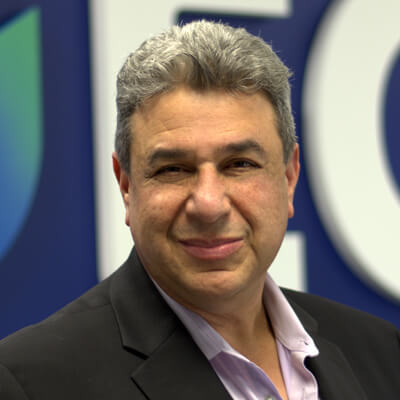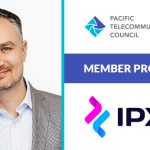As founder and CEO of EdgeCloudLink (ECL), Yuval Bachar is building the world’s first zero-emissions hydrogen-powered data centers. He has held senior positions at Microsoft, LinkedIn, Facebook, Cisco Systems, and Juniper Networks and is recognized as a top influencer in the data infrastructure industry. Yuval is also a founder of the Open19 Project and former president of the Open19 Foundation.
His work focuses on sustainable data centers leveraging machine learning and AI to maximize efficiencies. Yuval holds eight U.S. patents related to data centers, networking, and system design, and three Cisco Pioneer Awards. He has a BSEE from Technion Institute in Haifa.
How can corporations and researchers best serve the next generation?
In order to pave the way for the next generation of ICT professionals to achieve the highest level of technological innovation, we must also embrace sustainability. It is imperative that corporations and researchers prioritize sustainable practices in their operations and research endeavors. Research has shown that sustainable innovation can lead to cost savings, increased productivity, and reduced environmental impact.
One way to ensure that the next generation is prepared for the industry’s ever-changing demands is by providing them with real-world experiences that incorporate sustainable practices. Corporations should offer internship, co-op, and mentorship programs that focus on sustainability. This will not only benefit the environment and society as a whole, but it will also provide students with valuable skills and knowledge that will prepare them for the workforce.
Academic institutions also have a critical role to play in preparing future ICT professionals. Researchers must ensure that relevant and modern curriculums include sustainable principles and practices. This means incorporating courses that focus on sustainable technology, energy, and resource management. Collaboration between corporations and researchers is also crucial for bridging the gap between theoretical knowledge and practical, sustainable skills.
By investing in sustainable initiatives and collaborations between industry and academia, we can build a bright and sustainable future for the next generation of ICT professionals. We need to prioritize technology that will help us reduce our carbon footprint, increase energy efficiency, and make better use of our resources. Together, we can achieve technological innovation and sustainability goals at the same time.
What new apps would be a game-changer in the next five (5) years?
While it’s impossible to predict specific apps that will emerge in the next five years, we can identify five key trends and technological advancements that may drive the creation of game-changing apps in the ICT world:
- Augmented reality (AR) and virtual reality (VR) apps: As AR and VR technologies continue to improve, we can expect more immersive and interactive experiences in professional applications. Apps that enable seamless collaboration in virtual environments, or blend the digital and physical world, could revolutionize various industries.
- Artificial intelligence (AI) and machine learning (ML) apps: The advancements in AI and ML can lead to the creation of smarter and more personalized apps. For ICT, AI will revolutionize the industry over the next five years, potentially transforming the way our ecosystem operates. With AI, we can expect a greater ability to analyze, process, and interpret vast amounts of data in real time. AI and ML will also enable better decision-making through predictive analytics while freeing up valuable resources by automating routine tasks. Additionally, AI will be invaluable in identifying and preventing data breaches, thus making networks and data centers much more secure.
- Internet of Things (IoT) and smart cities apps: As cities become more connected and IoT devices become more ubiquitous, apps that manage and optimize various aspects of urban living, from traffic control to energy consumption, will gain traction. For the ICT industry, apps that enable seamless integration and control of systems will become increasingly popular.
- Decentralized apps (dApps) and blockchain-based apps: As the blockchain ecosystem matures, we can expect more decentralized apps that offer secure, transparent, and tamper-proof solutions for various industries, including ICT.
- Sustainability and environmental apps: As climate change and environmental issues become more pressing, we can expect a rise in apps that help industries reduce their carbon footprint, optimize resource management and usage, and encourage sustainable operating practices.
If one thing should be redeveloped within the telecom and related industries, what should it be?
Data centers. They consume an enormous amount of the world’s non-renewable energy sources and thus contribute to the global warming crisis. By adopting sustainable power sources such as hydrogen, data infrastructure could significantly reduce its impacts on the environment. Scientists have recently made impressive progress in attempting to develop sustainable and renewable sources of hydrogen that do not release substantial levels of greenhouse gasses into the atmosphere. This development could help hasten our transition away from reliance on fossil fuels. Although more advanced technology is still needed to scale this innovation, hydrogen’s promise for data center operations is revolutionary. If successful, we will take another step toward meeting society’s ever-growing need for data processing capacity in a way that does not deplete natural resources or pollute our air.
How does PTC fit your company’s goals or career purpose?
With our sights set on a greener future, PTC aligns perfectly with ECL’s mission to optimize data centers for sustainability. Countless enterprises, including many PTC Members, are dedicated to this cause. Our shared goal is to lay the foundation for a more sustainable and efficient ICT ecosystem that benefits both industry and society.
What vital piece of information should people know about PTC?
PTC is more than just another telecom industry organization. It’s a dynamic global community that brings together ICT thought leaders at the a href=”https://www.ptc.org/ptc24/”>Annual Conference to share ideas, solve problems, and create opportunities for growth and innovation. With its diverse membership and unique approach to collaboration and knowledge-sharing, PTC has been shaping the future of the global ICT ecosystem for over 40 years.
What advice would you share with current and future graduates interested in this field?
First, always continue learning. The world of technology is constantly evolving, and you need to stay on top of the latest developments and trends to stay relevant. Second, develop a strong network of contacts. Attend industry events, join relevant professional associations, and connect with others in the field. You never know when a connection might prove invaluable in your career. Finally, be confident in your abilities and don’t be afraid to fail. Always strive to innovate and be willing to take risks and think outside the box.
What is something that not that many people know about you?
As a disruptive evangelist, I am dedicated to revolutionizing the way we approach digital infrastructure to ensure a better future for our planet, society, and economy. My mission is to transform the data center industry toward green and sustainable practices to solve the economic, ecological, and community impacts of building and operating data centers. Through my work, I’m excited to bring this vision to life with the world’s first off-grid, zero-emissions data centers fueled by hydrogen. By Q2 2023, ECL will make history with the launch of our ground-breaking facility, and we’re already planning more game-changing projects globally. We’re not just planning for a better tomorrow — we’re making it a reality today.
About EdgeCloudLink Inc.
ECL builds and operates off-grid, sustainable, scalable, and cost-effective hydrogen-powered data centers optimized for mid-sized operators. ECL’s technology includes extensive power management and cooling innovation, optimized for high-density servers operating at extremely low noise levels and with zero emissions. 3D printed modular designs enable rapid construction and delivery cycles between six to nine months with a significant cost reduction. ECL’s proprietary DC management system monitors and controls all operations, from power generation to delivery and cooling, in real time. ECL’s first data center is currently under construction in Silicon Valley, with completion scheduled for Q2 2023.









